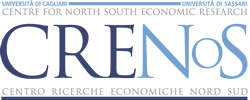Do we need more time for leisure?
| Title | Do we need more time for leisure? |
| Publication Type | Working Paper |
| Year of Publication | 2002 |
| Authors | Deidda, LG, Cerina, F |
| Number | 2002_03 |
| Keywords | endogenous labour supply, golden rule, overlapping generations |
| Abstract | ”We need more time: more time for leisure” Linton Kwesi Jonhson used to dub. Indeed, the analysis of an OLG economy with endogenous labor supply gives some rational to the dub poet’s claims. In our setting, the golden rule is defined as the pair of capital-labour ratio and individual labour supply which maximises the steady state utility of each generation. When, other things equal, agents are motivated to work more the higher the level of wages, individual labor supply will be increasing (decreasing) in capital labor ratio according to whether the elasticity of wages per unit of labour is bigger (smaller) than the relative change of the value of the fraction of labour income saved. Hence, if the economy is dynamically efficient, agents tend to work more than in the Golden Age if the propensity to save evaluated at the golden rule is, other things equal, relatively high. Conversely, under dynamic inefficiency, they work too much if and only if the propensity to save is relatively low. For given values of the parameters determining the propensity to save, individuals in dynamic efficient (inefficient) economies work more than in the Golden Age as long as the labour share of income is sufficiently high (low). These findings appear to be of some interest with reference to the 35 hours working-week debate in Europe. |
| Citation Key | 177 |
| Attachment | Size |
|---|---|
| 224.92 KB |
